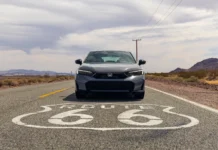
This question comes from Adam, who asks:
I was looking at the golf but I am concerned about reliability. Are these cars with the automatic transmission reliable? I keep hearing mixed reviews on the Internet. I like the GTI, but I know that they have had trouble with the DSG (Dual Clutch) transmission. Have they fixed this issue?
You Picked the Right Nerd
As I own a 2015 Golf GTI, I was chosen to answer this question, to the best of my Volkswagen-nerd ability.
I will start by saying that I don’t actually own a dual-clutch GTI. I own a 6-speed manual version instead. However, I have plenty of experience driving the dual-clutch, as we’ve borrowed several examples from Volkswagen.
On the whole, I feel the DSG is an excellent transmission option. In fact, if you were buying a Golf R, I would suggest you buy that over the manual. It shifts quickly, holds gears well, and makes normal driving as comfortable as any automatic, for the most part.
Now, it appears Adam was asking about both the regular Golf and the GTI. The Mk7 Golf comes with a 6-speed automatic instead of a DSG. Volkswagen made the dual-clutch transmission an option on the GTI and Golf R.

Stop-and-Go? You may want the automatic.
From my experience in the community, I have not heard tons of horror stories about reliability with the DSG, or the automatic in the regular Golf. Plus, if you are buying the car new, you’ll have a warranty to cover any maintenance headaches for the first 6 years or 72,000 miles. Though, I have heard of a couple headaches to consider before buying a DSG-equipped GTI.
Adam informed us that he spends a lot of time commuting in stop-and-go traffic. This is an area where many dual-clutch transmissions struggle, including the GTI. Because of the way a dual-clutch is constructed, there is no torque converter like a typical automatic. So, the car has to slip the clutch to mimic the action of a torque converter. This can make the car jerky while driving in heavy traffic. It’s not as painful for some as driving a manual, but it’s less ideal than an automatic.
The other thing to consider is Volkswagen’s 40,000-mile service interval for the DSG. This is a process that requires dropping the oil pan, replacing costly transmission fluid, and replacing the filter. Altogether, due to the time that it takes to complete, the service will cost you a pretty penny – at least $400. And you pretty much have to do it every 40,000 miles, or else you may damage your transmission. This is not related to the 40,000-mile general service that VW also recommends, on top of servicing the DSG transmission.
Should You Buy One?
My advice is this: Reliability is not a huge concern. However, the DSG has some headaches that come with ownership, like any other dual-clutch out there. If you can live with the downsides, then it’s an excellent choice.
The car itself I cannot recommend enough. It’s incredibly fun to drive, great on gas, and can fit a whole bedroom’s worth of stuff from Ikea in the back. Trust me, as a recent college graduate, I would know.
Thanks to Adam for sending in the question, and letting me flex my Volkswagen knowledge a little. If you have any questions, like Adam, feel free to send them in to info@tflcar.com and we will do our best to answer them.
Tommy and I filmed a comprehensive video on the recently facelifted Mk 7.5 Golf GTI. To find out everything you need to know, check out the video below:

























